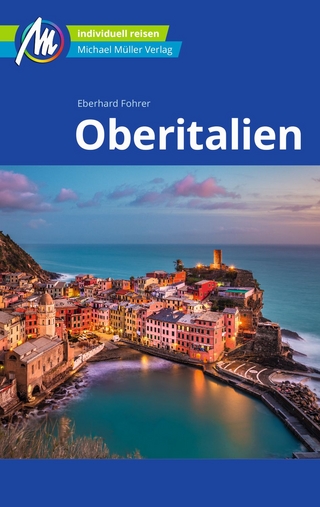
Medieval Tuscany and Umbria
Seiten
1992
Viking (Verlag)
978-0-670-83525-6 (ISBN)
Viking (Verlag)
978-0-670-83525-6 (ISBN)
- Titel ist leider vergriffen;
keine Neuauflage - Artikel merken
Part of a series of architecture guides, this guide to Tuscany and Umbria, includes the northern region of Tuscany - Lucca, Pisa, Pistoia and Prato - as well as San Gimignano, Volterra, Siena and Arezzo. In Umbria the author explores Gubbio and Perugia, Assisi and the central region.
Part of a series of architecture guides which set out to give an informative introduction to architectural styles in many different parts of the world. Each guide focuses on a distinctive type of architecture within a country or a particular region, giving a detailed, well-illustrated survey of the buildings most likely to excite the traveller's curiosity and stay in the mind long after the return home. The introductory section of each book provides the historical context of the buildings. Against this background, the development and characteristics of the architecture are discussed, with an account of the principle architects involved. Finally a gazetteer lists all the important examples of the style plus a selection of minor buildings. The main part of this particular book is a guide to the distinct area of Tuscany and Umbria, arranged in geographic order so that the traveller can plan a comfortable itinerary without too much retracing of steps. Starting with the northern region of Tuscany - Lucca, Pisa, Pistoia and Prato - the author moves on to Florence, San Gimignano and Volterra, Siena and Arezzo.
In Umbria he explores Gubbio and Perugia, Assisi and the central region, finishing with Orvieto and Todi in the west. He shows how the cathedrals and churches of the area are often characterized by distinctive zebra stripes, while the civic buildings typically display a military aspect with their tall towers and narrow entrances.
Part of a series of architecture guides which set out to give an informative introduction to architectural styles in many different parts of the world. Each guide focuses on a distinctive type of architecture within a country or a particular region, giving a detailed, well-illustrated survey of the buildings most likely to excite the traveller's curiosity and stay in the mind long after the return home. The introductory section of each book provides the historical context of the buildings. Against this background, the development and characteristics of the architecture are discussed, with an account of the principle architects involved. Finally a gazetteer lists all the important examples of the style plus a selection of minor buildings. The main part of this particular book is a guide to the distinct area of Tuscany and Umbria, arranged in geographic order so that the traveller can plan a comfortable itinerary without too much retracing of steps. Starting with the northern region of Tuscany - Lucca, Pisa, Pistoia and Prato - the author moves on to Florence, San Gimignano and Volterra, Siena and Arezzo.
In Umbria he explores Gubbio and Perugia, Assisi and the central region, finishing with Orvieto and Todi in the west. He shows how the cathedrals and churches of the area are often characterized by distinctive zebra stripes, while the civic buildings typically display a military aspect with their tall towers and narrow entrances.
| Erscheint lt. Verlag | 28.5.1992 |
|---|---|
| Reihe/Serie | Architectural Guides for Travellers |
| Zusatzinfo | photographs, illustrations, maps |
| Verlagsort | London |
| Sprache | englisch |
| Maße | 154 x 217 mm |
| Gewicht | 399 g |
| Themenwelt | Reiseführer ► Europa ► Italien |
| Technik ► Architektur | |
| ISBN-10 | 0-670-83525-0 / 0670835250 |
| ISBN-13 | 978-0-670-83525-6 / 9780670835256 |
| Zustand | Neuware |
| Informationen gemäß Produktsicherheitsverordnung (GPSR) | |
| Haben Sie eine Frage zum Produkt? |
Mehr entdecken
aus dem Bereich
aus dem Bereich
individuell reisen mit vielen praktischen Tipps
Buch | Softcover (2024)
Michael Müller (Verlag)
28,90 €


